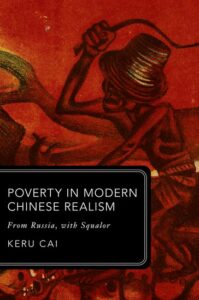
Keru Cai’s Poverty in Modern Chinese Realism examines the ways in which early 20th-century Chinese writers drew upon Russian works about the socially downtrodden to describe poverty, in a bid to enrich Chinese culture by creating a syncretic new realism. Modern Chinese realist writers turned to the topic of material poverty—peasants suffering from famine, exploited urban laborers, homeless orphans—to convey their sense of textual poverty and national backwardness.
The combination of a radically new subject matter and experimentation with diverse literary resources, indigenous and foreign, generated major innovations in narrative technique. Ultimately Cai shows why Russian literature, itself long preoccupied with a problem of belatedness vis-à-vis Western Europe, occupied a privileged place for Chinese intellectuals of this era.

You must be logged in to post a comment.